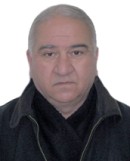

Plenary Lecture
Numerical Methods of Accidental Leak localization on the Branched Main Gas Pipeline

Professor Teimuraz Davitashvili
I. Vekua Institute of Applied Mathematics
Tbilisi State University
Tbilisi
&
Georgian Hydro-meteorological Institute
Tbilisi
GEORGIA
E-mail: temuri.davitashvili@viam.sci.tsu.ge
Abstract: Analyses of a reliability of the main gas pipeline has shown high probability of the pipeline’s some sections damage and gas leakage. The leaks caused by damage of pipelines are usually very dangerous. Intensive leaks can stimulate explosions, fires and environment pollution, which can lead to the ecological catastrophe. In this case there can be an enormous economical loss. That is why the determination of damage place in pipelines in time is the significant problem. Generally gas leakage (as a result the gas pressure and expenditure alteration) is accompanied by non-stationary flow of in the pipelines. After some time of gas leakage (under some conditions) gas movement in the pipelines has stationary character. That is way it is necessary to study both the non-stationary and stationary stages of the gas movement in the pipelines having gas escape in the some sections of the main gas pipeline. In the present paper disclosing the location of large scale accidental gas escape from the complicated gas (oil) pipe-line for the both gas stationary and non-stationary flow is studied. For solving the problem it has been discussed early-made method, reason is that the exact analytical method has not been existed. We have created quite general test, the manner of the solution has been known in advance. We consider this question as a reverse task of hydraulic calculation problem. The algorithm does not required knowledge of corresponding initial hydraulic parameters at entrance and ending points of each sections of pipeline. The algorithm is based on mathematical model describing gas stationary movement in the simple gas pipeline and upon some results followed from that analytical solution and computing calculations.Comparison results of calculation with real data has shown the affectivity of the suggested methods.
Brief Biography of the Speaker:Prof. Teimuraz Davitashvili holds a 5-year Diploma in Mathematics (specialization Hydro-air Mechanics) from Tbilisi State University (1972). In 1985 he received the Ph.D and in 1997 the Doctor of Physics and Mathematics upon the doctoral thesis “ Numerical Modelling of Some Problems of Atmosphere Physics for Mountain Regions“. Since 1972- researcher, senior researcher, head of department and currently head of laboratory of Mathematical Modelling and Numerical Analyses at I.Vekua Institute of Applied Mathematics of Tbilisi State University. From 1994 to 1998 an Associate Professor and from 1999 to 2006 a Full Professor of Tbilisi State University. Since 2006- head of department of Weather Forecast and Modelling of Natural and Anthropogenic Catastrophic Events at the Hydrometeorological Institute of Georgia. He published 1 book, about 120 research papers in various scientific journals and international conference proceedings. His general research interests are: applied mathematics, computational simulation of non-ordinary events, numerical modeling of environmental pollution and weather forecast by numerical methods.